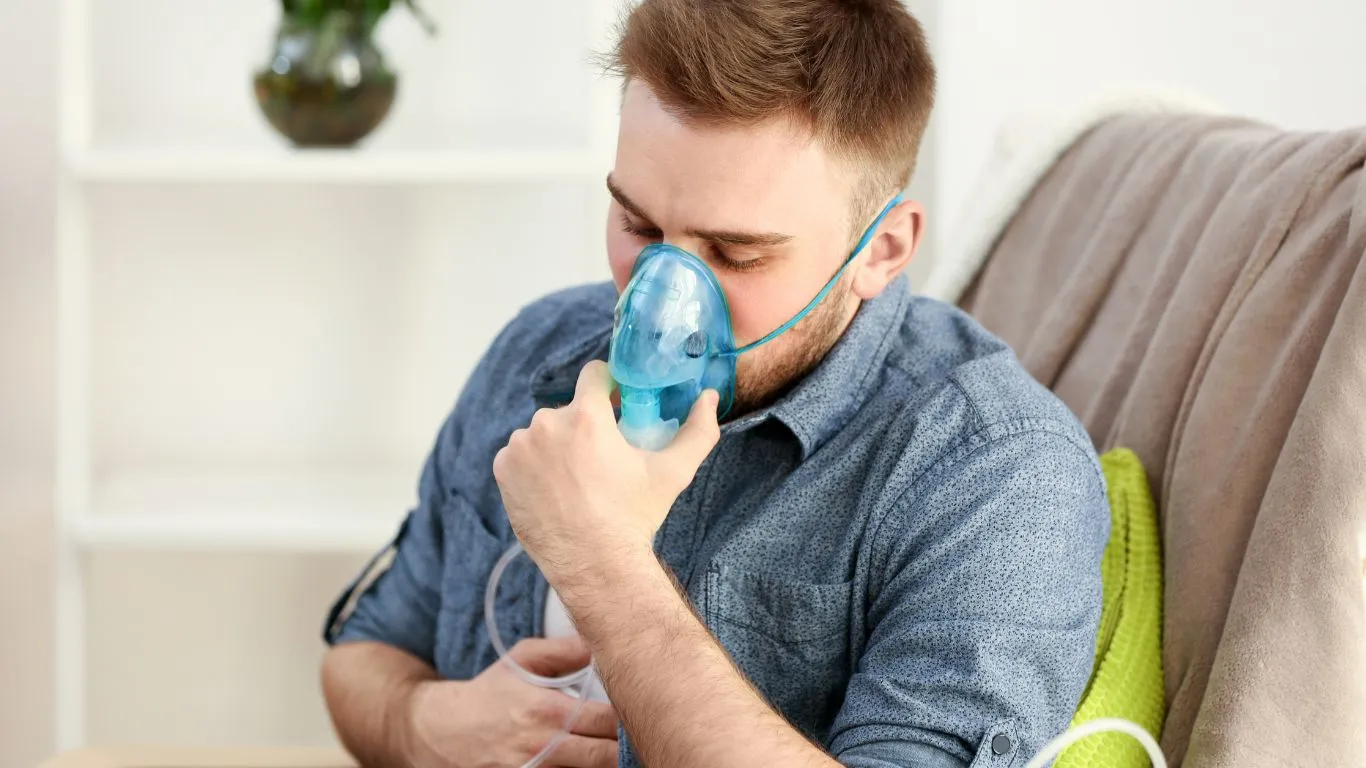Is Asthma More Common in Women? 🌬️💨
Understanding Asthma and Its Gender Disparities 🌍

Asthma is one of those things that can hit anyone, but it seems to affect women differently. It’s all about the airways – they get inflamed and narrow, making it tough to breathe. But what’s weird is that the gender difference is real. As you age, especially for women, asthma seems to show up more frequently. And there are a few reasons for that.
The Science Behind Asthma: How Gender Plays a Role 🔬
In general, asthma is a chronic condition that causes inflammation and narrowing of the airways, making it difficult to breathe. For women, hormonal fluctuations, especially during pregnancy and menopause, can influence asthma symptoms, making them more severe or even triggering attacks. Additionally, women’s immune systems tend to react differently to allergens and pollutants, which could explain why asthma is more common in females as they age.
- Hormonal Influence: Estrogen and progesterone, two key hormones in women, can affect airway function and immune response.
- Pregnancy: During pregnancy, asthma can worsen or improve, with some women experiencing “pregnancy-induced asthma.”
- Menopause: The hormonal changes during menopause may also lead to worsening symptoms in some women.
Troubleshooting Common Issues 🔧

A lot of women with asthma face certain challenges, especially as they go through hormonal changes like pregnancy or menopause. But there are ways to deal with these common issues. Let’s go over them!
Common Asthma Triggers in Women 🤧
- Hormonal Fluctuations: As mentioned earlier, that lovely hormone rollercoaster can mess with asthma. Tracking your symptoms could help you figure out if they’re linked to your cycle or pregnancy.
- Allergens: Dust, pet dander, pollen… you name it, these little guys can make your asthma worse.
Air purifiers, regular cleaning, and avoiding pet dander can help manage this. - Weather: Cold, dry air or extreme humidity can make breathing harder. Try to avoid outdoor activities during extreme weather or wear a mask to protect your airways.
Tips for Managing Asthma Effectively 💡
- Work with your healthcare provider to develop a personalized asthma action plan.
- Stay active with regular, moderate exercise to strengthen your lungs.
- Use prescribed medications consistently to manage symptoms.
- Avoid smoking and second-hand smoke, as this can worsen asthma symptoms.
Case Studies: Real-Life Success Stories 🏅

It’s one thing to read about asthma, but hearing real-life stories can really hit home. Let’s take a look at a couple of women who’ve faced asthma head-on and found ways to manage it!
Sarah’s Journey: Overcoming Pregnancy-Related Asthma 💪
Sarah, a 32-year-old mother of two, found out she had asthma during her first pregnancy. “I had always been healthy, but my breathing became labored, especially during my second trimester. My doctor explained that pregnancy could trigger asthma flare-ups, but with the right medication and lifestyle changes, I was able to manage it,” Sarah says.
By working with her healthcare team, Sarah was able to control her asthma during her pregnancy, and even after giving birth, she continued to monitor her asthma closely.
Emily’s Experience: Managing Asthma During Menopause 🌸
Emily, a 50-year-old woman experiencing the onset of menopause, noticed that her asthma symptoms were worsening. “I used to be able to manage my asthma with minimal effort, but menopause changed everything. Hot flashes and hormonal shifts seemed to make my asthma attacks more frequent,” she recalls.
After consulting with her doctor, Emily discovered that the hormonal changes of menopause can exacerbate asthma symptoms. She worked closely with her healthcare team to adjust her treatment plan, including adding a daily inhaler and making lifestyle changes like reducing stress and eating anti-inflammatory foods.
Key Takeaways / Summary 📝

Let’s sum it up:
- Asthma and Gender: Asthma is more common in women, especially during adulthood, due to hormonal fluctuations and immune system differences.
- Common Triggers: Hormonal changes, allergens, and weather conditions are significant triggers for women with asthma.
- Effective Management: Consistent medication use, lifestyle changes, and identifying triggers can help women effectively manage asthma.
- Real-Life Stories: Women like Sarah and Emily show that with the right care and attention, asthma can be controlled, even during significant life changes like pregnancy and menopause.
FAQs: Everything You Need to Know ❓
- Is asthma more common in women or men? Women tend to get asthma more often, especially as they get older. Hormonal changes play a big role in that.
- Can pregnancy cause asthma symptoms to worsen? Yes, pregnancy can trigger asthma symptoms in some women. However, some women see improvements during pregnancy. It varies.
- Does menopause affect asthma? Yes, menopause can worsen asthma symptoms due to hormonal changes. It’s something many women experience.
- How can I manage asthma during pregnancy? If you’re pregnant, consult your healthcare provider to adjust your asthma treatment. There are safe medications that can help you manage asthma during pregnancy.
References 📚
- American Lung Association. (2022). Asthma and Women. [Link]
- National Asthma Education and Prevention Program. (2021). Asthma in Women. [Link]
- Journal of Allergy and Clinical Immunology. (2023). Hormonal Factors in Asthma. [Link]
Disclaimer ⚠️
This blog post is for informational purposes only. Always consult with your healthcare provider before making any changes to your asthma management plan.
Call to Action: Take Control of Your Asthma Today! 💬
If you’re struggling with asthma, especially as a woman, don’t wait any longer to take control. Reach out to your healthcare provider today and start developing a personalized plan to manage your asthma. Share your experiences with others in the comments, and let’s support each other in our journeys to better respiratory health!

Bianca Nala is a compassionate Nurse Practitioner with a strong background in primary and respiratory care. As a health writer for Healthusias.com, she combines her clinical expertise with a talent for clear, relatable storytelling to help readers better understand their health. Bianca focuses on topics like asthma, COPD, chronic cough, and overall lung health, aiming to simplify complex medical topics without losing accuracy. Whether she’s treating patients or writing articles, Bianca is driven by a single goal: making quality healthcare knowledge accessible to everyone.







